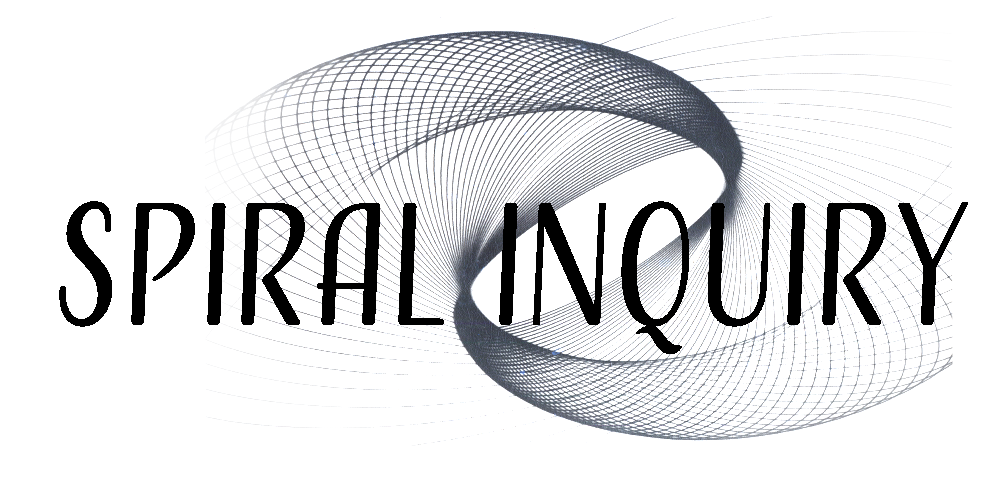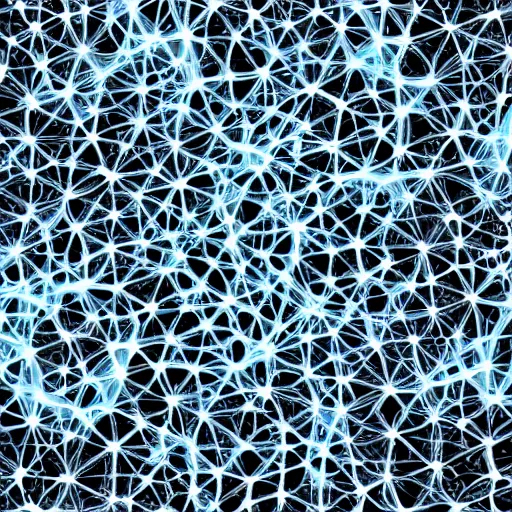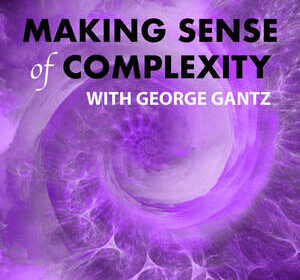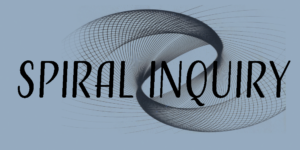Most of what we know, we learn from others. This “social knowledge” is the foundation of human progress. When social trust fails, social knowledge is useless, or worse. What can we do to rescue this endangered species?
Introduction
Philosophers have debated how we know things (epistemology) for millennia. It is an important topic, but in a practical sense, we only come to know things in three ways: (1) direct experience (2) logical (deductive) reasoning, or (3) from what others tell us.
The vast majority of what we know and believe we learn from others, often with very little contribution from our own reasoning or experience. This has likely always been true of the human species. We are fundamentally a social animal, and our progeny have been granted an extraordinarily long childhood to learn what they need to become fully functioning adults. Language, social skills and cultural knowledge, all learned through interaction with parents and other humans, place intensive demands on children. And as adults, we are awash in language, social and cultural inputs and interactions with family, friends, the communities we inhabit, and with the broader world. This “social knowledge” plays a huge role in what we think and believe. Significantly, the transmission of social knowledge has been fundamental to the evolution and expansion of the human species, from the paleolithic era through to our modern, global civilization.
One example of social knowledge is my modest knowledge of theoretical physics. I have never been a scientist; I have never worked with scientific instruments and have never conducted my own scientific experiments. What I have is so-called “book learning.” All of my knowledge of physics, indeed all of my knowledge of the sciences beyond rudimentary “natural” observations, is ultimately from what I have learned from others. So – how do I know it’s true? For the most part, I trust the scientific process of collective inquiry and consensus, and I rely on widely accepted scientific sources. I do also apply a rational lens to what I read and hear – it needs to make sense and it needs to be consistent with everything else I know. But none of this knowledge is from personal experience. While I feel that I have high standards about validating rationally what I believe in, I am also well aware that my “rational” deliberations are inherently biased by the deep social, cultural and linguistic heritage I carry with me.
There are many areas where my “belief standards” about knowledge are quite a bit lower. Recently, my wife and I went to a lovely concert by singer-songwriter Livingston Taylor, and as he demonstrated his impressive skill and wide-ranging repertoire he talked about the history of each song and the writers and musicians that wrote or inspired it. I loved the evening and am happy to believe that everything he said was factually true without verification. This is probably the way most “knowledge” is transmitted between humans. If you like the source and the information, it is very easy to accept it as true. The sharing of social knowledge among friends, families and trusted communities is usually quite easy and automatic.
The Exponential Challenge
However, the span of “knowledge” that is generated and shared by the human species has changed. In the distant past, person-to-person oral communication was the only method for transmitting social knowledge. The span of cultural knowledge was thus limited to what could be conveyed in words and remembered by each human. It is likely that the use of stories and myths arose as a technique that expanded social knowledge by making it more memorable and transmissible through time.
The increasing stores of knowledge that could be shared socially took another massive leap with the invention of first written records and then, later, mechanical printing. As populations increased, printing technology improved, and literacy expanded, the total span of human knowledge being shared continued to expand exponentially. A few centuries past, it was still possible for a well-read individual to be familiar with the broad body of knowledge (at least in the native language) that had been compiled in the social institutions known as libraries.
That is no longer the case today. A hundred years ago, nearly 10,000 books were published each year in the US alone.[1] Today that total is estimated to be more than 3 million books a year. While many might not be worth the paper they are printed on (or the computer they can be distributed to), it is impossible to imagine what “well-read” would mean in the context of 3 million titles. This, of course, also does not include the tally of other available sources of socially distributed information such as newsprint or, more recently, broadcast media. Increasingly, the accumulation and dissemination of social knowledge has required institutions and processes for filtering and promulgating the most important social information, to supplement traditional social contact. In addition to religious and political institutions that sorted and promulgated knowledge as they defined it, academies, guilds and other independent institutions developed. More recently, journalists, publishers and academic or scientific experts played a role.
These traditional trusted sources have been challenged by technological and social changes that began in the late 20th century and that have accelerated in the 21st. You could say that the social knowledge landscape today has been democratized — anyone with access to the web who is able, by whatever means, to capture a large numbers of followers, is by definition a social influencer.
The Deflation of Expertise
The exponential growth of information and the changing means humans used to share social knowledge has continued into the 21st century as technologies have broadened to include email, websites, streaming services, social media outlets and specialized apps. The dizzying array of information sources defies comprehension. As the volume has increased, so has the particularization of information intended to penetrate specific target audiences. In the sciences, the last century brought an explosion of specialization and complexity that has contributed to the decline of perceived authority of scientists as trustworthy arbiters of knowledge.[2]
The prestige of qualified experts has also been eroded by the huge volume and ubiquity of unfiltered information sources including social media available in the 21st century. The primary driver of much of this information flow is not the sharing of ideas or the filtering of expert, opinion, but the financial incentives for the influencers and the platforms that are able to attract and claim the attention of as many individuals as possible. Mainstream media was disrupted by the proliferation of cable TV sources and both were disrupted by now-ubiquitous internet streaming services and subsequent social media platforms. These trends exploded in the early decades of the 21st century. It is increasingly difficult to distinguish between information and entertainment, or to evaluate the veracity and trustworthiness of social information sources. Pictures and videos are also now potentially fictional creations, of human or artificial intelligence, intended to attract attention or to confuse and confound. While solid, well-thought and thoroughly researched information is also being published and shared in vast amounts, it seems these sources are increasingly being drowned out by the noise of so many competing and often strident voices.
In 2022, anthropologist and author Vincent Ialenti, lamented these trends, claiming they have resulted in “the deflation of expertise”.[3] But the reality is that we are all now being flooded with misinformation, disinformation or even outright fantasy.[4] In this context, the ease with which social knowledge can be transmitted may no longer be serving a useful purpose for humanity. Miya Perry, in a recent article in the Palladium Newsletter, maintains that our current civilization is experiencing an Existential Crisis[5] as a result.
Rescuing Social Knowledge
Some people, perhaps a majority of those willing to express their opinion, would say that the problem today is that “other people” are not listening to them (or to their trusted sources). This is the nature of polarization, resulting from the fact that polarizing statements and beliefs are more compelling than cautious or conciliatory ones, and garner much greater social attention. Everyone is being primed for anger and polarization. There is little incentive to express conciliatory or nuanced perspectives in the current information ecosystem. Those views are much less likely to be liked or shared . If your goal is to be heard, then it seems you need to be as loud and obnoxious as possible.
That reasoning, however, is an illusion. The attention to highly polarized and aggressive communications are unlikely to change minds, but it is likely to provoke hostility, as well as kudos, likes and shares from those who already agree with you. The two sides remain in their self-selected bubbles of information and opinion. If anything, the polarization gets worse and the positions more extreme. The metaphor of pouring gasoline on a fire is apt.
Other people might say the situation is hopeless or, even worse, dangerous. Do not express your opinion, except to those with whom you are close and with whom you agree. Do not take the risk of uncomfortable conversations or, worse, “blowback” in the form of rejection, social abuse or harassment. This silence, of course, will not further any social goals you might hope for, nor will it change any minds. It also avoids dealing with the unpleasant reality, thereby letting it get worse. The metaphor of sticking your head in the sand is apt.
Navigating this dilemma is challenging. Where do we start?
Intellectual Humility
A first step is to recognize that you there is a lot you don’t really know. As I stated in the opening paragraph, philosophers have been grappling with the question of how we know things for millennia, and most of what we think we know we learn from others. We rarely have access to direct evidence to confirm what we believe and, significantly, neither did those from whom we learned it. Add to that the human tendency to believe what is convenient or socially rewarding, as well as the invisibility of our own biases. Our path to knowledge is fraught with errors and mistakes. Recognizing this in ourselves opens the gates to the virtue of intellectual humility. I’d also point out that being right all the time is really a terrible burden that nobody should have to carry.
Daryl Van Tongeren shared some of his research on intellectual humility recently in “The Curious Joy of Being Wrong.” As he defines it” [6]
“Within yourself, intellectual humility involves awareness and ownership of the limitations and biases in what you know and how you know it. It requires a willingness to revise your views in light of strong evidence.
Interpersonally, it means keeping your ego in check so you can present your ideas in a modest and respectful manner. It calls for presenting your beliefs in ways that are not defensive and admitting when you’re wrong. It involves showing that you care more about learning and preserving relationships than about being “right” or demonstrating intellectual superiority. “
Imagine a conversation where both participants, even when they have a different point of view, practice intellectual humility. At the end, you may find you still do not agree, but you will have built a relationship with another person. That relationship can be the basis for incremental changes in your own, or the other person’s, perspective over time, and for a much improved understanding of each other’s position and why it makes sense to them.
How do we apply intellectual humility in the turbulent, polarizing and disruptive world of instantaneous, ubiquitous and intrusive information flow that characterizes our modern world? My advice (and this is not unique or original) is:
Take everything with a grain of salt. If there is much that you don’t know, then the same is true of any source. That includes the sources you trust the most, as well as the ones you don’t.
Adjust your diet of information by tuning out inflammatory and polarizing material and by occasionally adding new sources, including ones you may not agree with.
If you do like, share, comment or publish yourself, try to keep the virtue of intellectual humility in mind by being courteous, curious and circumspect in what you say. Strong views do not need to be expressed in strong language or in personal comments. When it comes to the question of engaging with extreme views, disinformation, conspiracies or personal attacks, this requires careful judgement. Personally, I do not respond to “trolls”, but I will engage politely if someone seems willing to have a conversation. However, there are times, particularly for those in the public eye or positions of leadership, when confronting “free speech” is necessary for civic or moral reasons. For more on this, I’d recommend John Corvino’s article “In the ‘big tent’ of free speech, can you be too open-minded?“[7]
Finally, and perhaps most importantly, try to decrease your consumption of the constant and instantaneous “noise” that barrages our senses through screens and earbuds,. Replace it with conversations with other human beings. Including some you might not agree with. If we are trying to rescue social knowledge, the best way is by being social.
Your contribution to rescuing social knowledge may not seem significant, but you will probably feel better. And, who knows? – if enough people do the same, the results could be profound.
[1] Source: https://stuffnobodycaresabout.com/2012/01/31/how-many-books-were-published-100-years-ago-as-compared-to-today/
[2] Article in Spiral Inquiry 2019: What is Wrong with Science?
[3] Deep Time Reckoning, by Vincent Ialenti (2020).
[4] Article in Spiral Inquiry, 2022. A Culture of Fantasy.
[5] Everyone’s Existential Crisis, by Miya Perry, Paladium Magazine (Dec 29, 2023).
[6] The Curious Joy of Being Wrong, in The Conversation (December 26, 2023). Professor Van Tongeren has also worked with the John Templeton Foundation in their ”Intellectual Humility“ program area, at https://www.templeton.org/discoveries/intellectual-humility.
[7] John Corvino, in The Conversation, January 11, 2024.





















